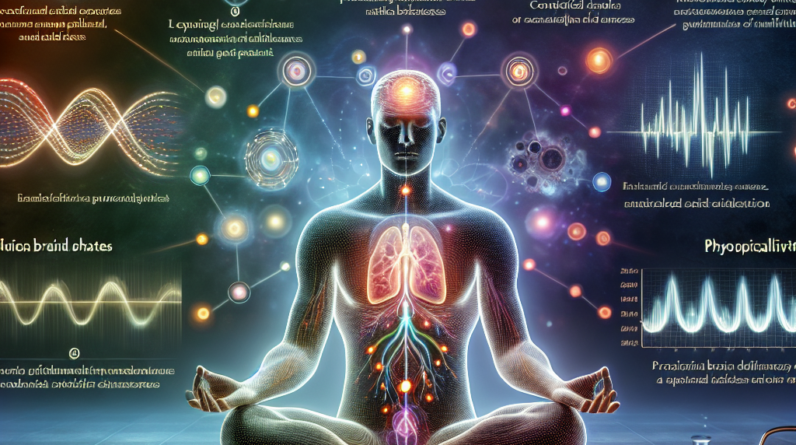
Understanding Mindfulness
What is Mindfulness?
Mindfulness, in its simplest form, is about being present in the moment—like really being here, not off in la-la-land. It’s a practice that allows us to tune in to our thoughts and feelings without judgment. I remember when I first came across mindfulness; it seemed like such a buzzword. But diving deeper, I discovered its profound impact on mental well-being.
Get a Huge Discount and Bonus! Try for 90 Days Risk Free
This practice often involves focusing on your breath or observing your thoughts as they come and go, kind of like watching clouds float by in the sky. Instead of getting tangled up in them, mindfulness helps us acknowledge these thoughts and move on. It’s like freeing up space in your brain—a breath of fresh air!
Mindfulness isn’t just a trendy meditation session; it’s a lifestyle change. I’ve found it spills over into my daily routines, making even mundane tasks feel meaningful. The essence of being mindful is about attentiveness, something we often overlook in our fast-paced lives.
The Benefits of Mindfulness
Engaging in mindfulness practices has been shown to reduce stress, enhance focus, and even improve relationships. Personally, I noticed a shift after incorporating mindfulness into my routine. The stress started to dissipate, and I found myself reacting to life’s challenges with a clearer mind.
Research supports this, too! Various studies indicate that mindfulness can lead to decreased anxiety and depression levels. It helps create a space where we can respond rather than react to life’s challenges. This level of awareness can even help you navigate tough situations with grace.
And let’s not forget the physical benefits! Mindfulness affects our body positively, lowering blood pressure and improving sleep quality. After embracing mindfulness, I felt more energetic and ready to face the world. Who wouldn’t want that?
The Science of Mindfulness
You might be wondering, what’s the science behind all this? Thankfully, researchers have delved into how mindfulness affects our brain. Studies using MRI scans have shown changes in brain regions associated with memory, self-awareness, empathy, and stress regulation after just a few weeks of mindfulness training.
This really hit home for me; the idea that I could physically alter my brain through mindfulness was mind-blowing! It’s like giving your brain a workout, reshaping how you think and feel about your experiences. It’s empowering to know that I can contribute to my mental wellness through simple practices.
In essence, mindfulness creates new neural pathways. Instead of being stuck in negative thought patterns, it encourages constructive thinking, making positivity more accessible. It’s a bit like upgrading your mental software—who wouldn’t want a smoother operating system?
Get a Huge Discount and Bonus! Try for 90 Days Risk Free
Incorporating Mindfulness into Your Daily Life
Simple Mindfulness Exercises
For anyone just starting out, simple mindfulness exercises can make a big difference. One of my favorites is the five senses exercise, where I pause and take note of what I see, hear, smell, taste, and feel at that very moment. It grounds me and brings me back to the now.
Another easy practice is mindful breathing. I take time each day, even if it’s just five minutes, to focus solely on my breath—in and out. When my mind wanders, I gently guide it back to my breathing without judgment. It’s a simple yet powerful tool for finding tranquility.
Creating a dedicated mindfulness space or time in your schedule can also help. Whether it’s a cozy corner of your home or a few minutes during your lunch break, having that designated time makes it easier to stick with the practice and cultivate the right mindset.
Need a Serious Energy BOOST? Huge Discount Try for 90 Days Risk Free
Good Health Solution is Easier Than Most People Think!
Take a Look for Yourself!
The Role of Technology in Mindfulness
In this tech-savvy age, it’s awesome to see how technology aids mindfulness. Smartphone apps like Headspace or Calm provide guided meditations perfect for anyone looking to get started. I rely on these to help ease into practice, especially on days when I feel a bit overwhelmed.
There are also online communities and resources where individuals share their mindfulness journeys. Being part of a group has encouraged me to stay on track and learn from others’ experiences. Sharing tips and insights makes the journey more enjoyable and less lonely.
Moreover, virtual workshops and online courses can deepen your understanding of mindfulness. I attended a weekend retreat via Zoom last year, and it offered both community and education. It’s a great way to dive deeper without committing to a multi-day physical retreat.
Mindfulness in Challenging Situations
Practicing mindfulness can be especially impactful during stressful or challenging moments. I can’t emphasize enough how it’s helped me manage anxiety before big events, like presentations or meetings. Taking a moment to center myself allows me to approach the situation with an open and calm mind.
When faced with conflict, utilizing mindfulness means responding with intention rather than reacting impulsively. I’ve found that pausing to consider my responses can defuse tension and lead to more productive outcomes—not to mention saving a few friendships along the way!
Lastly, mindfulness allows us to handle setbacks with a more constructive attitude. Life throws curveballs, but with mindfulness, I can observe these challenges and work through them without getting swept away by negativity. It’s all about maintaining perspective—it’s okay to feel things, but not to let them control me.
Conclusion
In wrapping things up, I’ve learned that mindfulness isn’t a one-size-fits-all practice but a personal journey that enriches our life experience. Through understanding, incorporating, and applying mindfulness, we can foster a more resilient and fulfilled self. I encourage you to take these insights and find what resonates with you. Enjoy the journey of mindfulness, one breath at a time!
FAQ
What is mindfulness?
Mindfulness is the practice of being present and fully engaged in the moment, allowing us to observe our thoughts and feelings without judgment.
How can I incorporate mindfulness into my daily routine?
You can start with simple mindfulness exercises like mindful breathing, engaging your senses, or dedicating specific time each day to practice mindfulness.
What are the benefits of mindfulness?
Mindfulness can reduce stress, enhance focus, improve relationships, and even contribute to physical health benefits, such as better sleep and lower blood pressure.
Does mindfulness really change the brain?
Yes! Research shows that regular mindfulness practice can lead to changes in brain structure and function, especially in areas related to memory, emotional regulation, and empathy.
Can technology help with mindfulness?
Absolutely! Different apps, online courses, and virtual communities can support your mindfulness journey, providing guided meditations and resources to enhance your practice.








